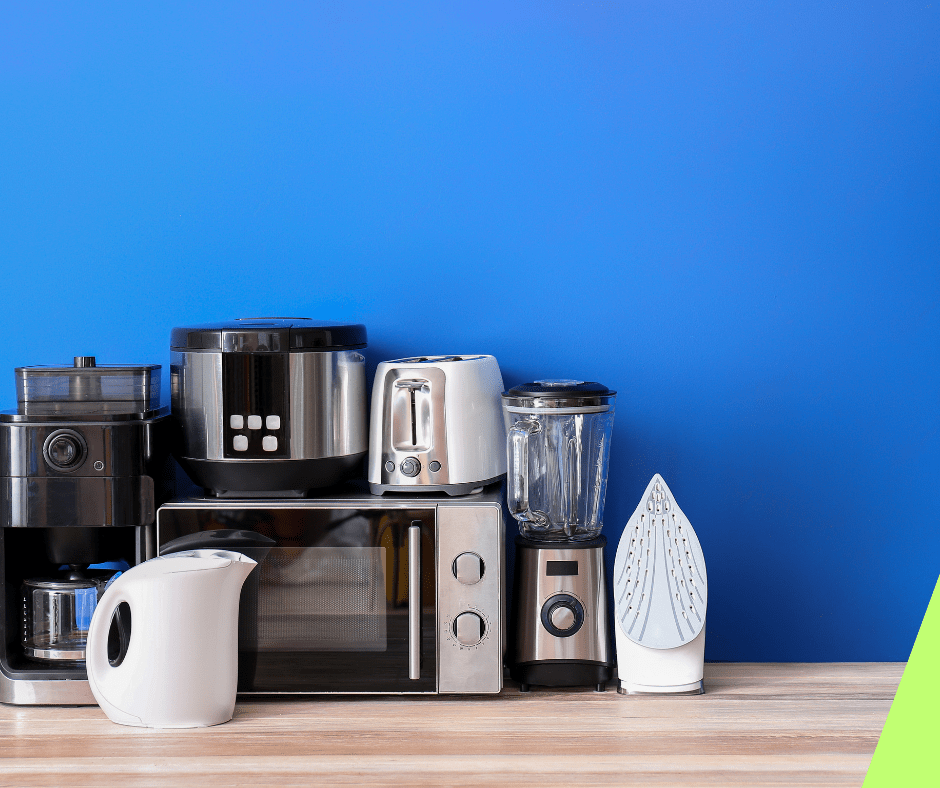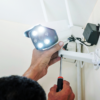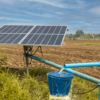One of the biggest challenges many people face when switching to solar, is realizing that some of their favorite appliances aren’t compatible with the solar system they can afford.
Whether you’re running on solar, a fuel generator, or electricity from the grid (NEPA),
the best way to reduce energy consumption in your homes is by buying energy saving household appliances instead of electronics that are big on power consumption.
Buying high-energy consumption appliances isn’t an ideal choice for energy-conscious homes and businesses.
Instead, look out for low energy consumption or inverter-compatible electronics.
Like inverter freezers, inverter ACs, energy solar pressing irons, solar fans that save lots of energy compared to the regular ones.
HERE ARE 10 ADDITIONAL WAYS TO REDUCE ENERGY CONSUMPTION IN YOUR HOME:
- Turn Off Appliances When Not in Use
Many appliances, even when not actively being used, still draw power in standby mode. Make it a habit to switch off appliances and unplug chargers, TVs, and other electronics when they’re not in use. - Optimize Your Lighting Usage
Switch to energy-efficient LED bulbs, which consume significantly less power and last longer than traditional incandescent or CFL bulbs. Additionally, make use of natural light during the day by opening curtains and blinds, and always turn off lights in unoccupied rooms. - Set Energy-Saving Priorities
Focus energy use on essential appliances and areas of the house. For example:
Use the air conditioner only in rooms that are occupied, or set it to a moderate temperature to reduce energy consumption. Delay running high-energy-consuming devices like washing machines or dishwashers until they are fully loaded. - Invest in Insulation and Weatherproofing
Good insulation keeps your home cooler in the summer and warmer in the winter, reducing the need for excessive heating or cooling. Seal gaps around windows and doors, and consider using draft stoppers to prevent energy loss. This simple step can cut energy use significantly over time. - Use Smart Home Technology
Smart plugs, thermostats, and energy monitors can help you track and manage your energy use more effectively. For instance, a smart thermostat can automatically adjust your home’s temperature based on your schedule, ensuring that energy isn’t wasted when you’re away. - Choose Energy-Efficient Cooking Practices
Use lids on pots and pans to cook food faster.
Use smaller appliances like microwaves or air fryers for small meals instead of the stove or oven.
Avoid preheating the oven unless absolutely necessary. - Maintain Your Appliances Regularly
Poorly maintained appliances consume more energy. Regularly clean air conditioner filters, defrost your fridge/freezer, and service your appliances to keep them running efficiently. - Wash Clothes in Cold Water
Heating water accounts for a large portion of energy use in washing machines. Use cold water whenever possible and air-dry clothes instead of using a dryer. - Limit Use of High-Power Appliances During Peak Hours
Electricity is often more expensive during peak hours. Schedule tasks like laundry or running the dishwasher for off-peak times to save both energy and money. - Embrace Renewable Energy
Install solar panels or use portable solar generators to supplement your energy needs. This reduces your dependency on grid electricity and lowers your overall energy costs.
Even if you don’t have a solar system yet, always choose appliances that are compatible. In the near future, you’ll find it hard to sell or use non-solar-friendly items.
Make smart choices now, and your future self will thank you!





